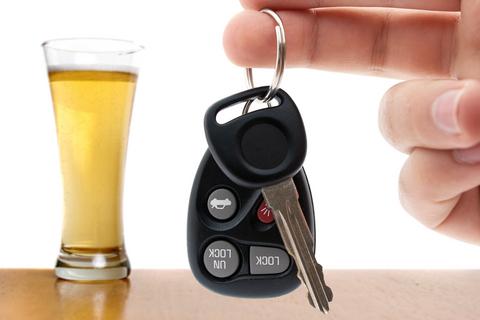Follow Us |Facebook
Call or Text for a Consultation
Recent Blog Posts
New Laws For 2017
Here are some new Illinois laws that went into effect on January 1, 2017…
Criminal Damage to Property Class Level
In 2017, the General Assembly raised the minimum threshold amount of property damage as it relates to class levels. Any damage to property below $500 is a Class A Misdemeanor, while damage above $500 is a Class 4 Felony. Previously, any criminal damage to property exceeding $300, in most circumstances, would constitute a Class A Misdemeanor, which is punishable by up to 364 days in county jail and anything over $300 would have become a Class 4 Felony, punishable with prison time between 1-3 years and fine of up to $25,000.
Juvenile Law Changes
New laws impacting juveniles (17 years old or younger) went into effect on January 1, 2017. One law that went into effect involves the classification of certain offenses. Under certain circumstances, Criminal Trespass to a Residence, Criminal Damage to Property, Criminal Damage to Government Supported Property, Criminal Defacement of Property, Disorderly Conduct and Obstruction of Justice constitute a Class 4 Felony, which carries penalties of 1-3 years in the Illinois Department of Corrections and a fine of up to $25,000.00. However, if the above felony offenses are committed by an individual 17 years, the individual is now facing a Class A Misdemeanor.
Repeat Speeding Offender Gets Six Month Sentence in Fatal Crash
 The Chicago Tribune reports that the driver in the fatal car crash that killed seventeen year old Julie Gorczynski has been sentenced to six months behind bars. The case gained national attention when its proceedings prompted harsher penalties for speeders in Illinois. “Julie’s Law” went into effect on July 1, 2012.
The Chicago Tribune reports that the driver in the fatal car crash that killed seventeen year old Julie Gorczynski has been sentenced to six months behind bars. The case gained national attention when its proceedings prompted harsher penalties for speeders in Illinois. “Julie’s Law” went into effect on July 1, 2012.
The fatal accident that took place last year was one in a long line of speeding offences for the driver. He is reported to have been travelling at a speed that was 36mph over the maximum speed allowed. His crashed his Mazda into a Jeep in which Julie was the passenger.
Marszalek had seven prior occurrences of speeding on his driving record at the time of the accident. Had a few of those been given stiffer penalties, he may not have been legally allowed to drive at the time of the accident, possibly keeping him off the road. The accident may have been avoided.
Upon learning the current laws governing punishments for speeding offenders, Julie’s parents fought for increased penalties for repeat offenders. Their diligence resulted in the passage of “Julie’s Law”, which prohibits judges from assigning probation to drivers travelling over 30mph (highway) and 25 mph (non-rural road).
Domestic Stabbing Hospitalizes Two Women
 Police responded to a domestic disturbance call in Chicago’s Englewood neighborhood, only to find blood spatters on the first-floor apartment walls and floor. According to the police, a 22-year-old woman was stabbed multiple times when she knocked on the rear door of an apartment around five in the morning on February 11. Police state that a 27-year-old woman opened the door with a knife in her hand, and started stabbing the younger woman.
Police responded to a domestic disturbance call in Chicago’s Englewood neighborhood, only to find blood spatters on the first-floor apartment walls and floor. According to the police, a 22-year-old woman was stabbed multiple times when she knocked on the rear door of an apartment around five in the morning on February 11. Police state that a 27-year-old woman opened the door with a knife in her hand, and started stabbing the younger woman.
The younger woman was taken to Advocate Christ Medical Center in Oak Lawn with serious-to-critical injuries, having been stabbed in the head, hand, arm, torso, and back, along with sustaining a collapsed lung. The 27-year-old had also received a stab wound in her left leg during the encounter, and was taken to St. Bernard Hospital and Health Care Center. She is listed in good condition.
According to this article in the Chicago Tribune, there was another woman in the apartment during the time of the stabbing, but she did not receive any injuries. None of the women were identified in the story, and Chicago Police News Affairs Officer John Mirabelli told the Tribune that criminal charges are still pending.
Warrantless Blood Draws and DUI
In Illinois, a DUI arrest can occur not only when an officer believes that someone is driving under the influence of alcohol, but a DUI arrest can occur when an officer has probable cause that an individual is driving under the influence of any controlled substance or marijuana. Currently, most breath analysis equipment is only able to determine the presence and/or amount of alcohol in a driver’s system. In order to determine whether or not a suspected drunk driver has any other controlled substance in their system (e.g., marijuana, cocaine, heroin, benzodiazepines, etc.), an officer will normally request that the driver submits to blood testing at a hospital (“blood draw”).
The United States Supreme Court has held that breath analysis testing is not subject to Fourth Amendment protection, while blood testing is subject to that protection. [1] This is important because if testing is subject to Fourth Amendment protection, law enforcement will be required to obtain a search warrant issued by a judge for any testing. There are many exceptions to this warrant requirement. For the purposes of this topic, the exception to the warrant requirement that has the most impact is called exigency.
Rise in Accidents Involving Stopped Emergency Vehicles
By: Kal Issa
Recently, there has been a spike in vehicle accidents involving stopped emergency vehicles, mainly Illinois State Police vehicles.[1] Unfortunately, some of these accidents have led to the death or serious injury to members of law enforcement. In Illinois, it has been nearly 20 years since lawmakers enacted a criminal statute to address this issue.
Scott’s Law, otherwise known as the “Move Over” law, requires motorists to change lanes away from the shoulder when there is an emergency vehicle parked on the shoulder with its emergency red, white, blue or yellow lights flashing.[2] If it not safe for the motorist to make this lane change, the motorist must proceed with due caution and reduce its speed. Scott’s Law was named after Scott Gillen, a Chicago firefighter who was struck and killed by a motorist while on the scene of a crash rendering emergency services.
With this recent rise in fatal accidents, it is fair to presume that prosecutors are ensuring that a motorist ticketed for violation of this law face tougher penalties. A violation of Scott’s Law is punishable by a fine of up to $10,000.00. Even if a violation of this law leads only to property damage to another, the motorist’s license will be suspended for a minimum of three months, up to one year.
Recreational Marijuana and Criminal Records
By: Kal Issa
With the passing of House Bill 1438, which allows for the legal possession of Cannabis, many individuals who have had criminal records based on the mere possession of certain amounts of marijuana will have the opportunity to have their criminal record wiped clean. That is because the bill will provide those individuals the ability to have their arrests, cases, and convictions expunged, making it as if it never happened at all.
House Bill 1438, known as The Cannabis Regulation and Tax Act, amends the Criminal Identification Act, which addresses the sealing and or expunging of certain criminal offenses. Sealing allows a record to be hidden from public view, while still being accessible to certain entities. Expungement, on the other hand, allows for the complete obliteration of a criminal record, essentially wiping the past away.
The new law allows previous “minor Cannabis offenses” to be completely removed from an individual’s history so long as the arrest, charge or disposition was for a Cannabis related offense involving less than 30 grams. This includes not only mere possession of Cannabis but even Possession with Intent to Deliver, Delivery of Cannabis or Manufacturing Cannabis. However, the prior offense must not be for delivering (or intending to deliver) to a minor nor can the offense have been associated with a violent crime.
Will Driverless Tractor-Trailers Contribute to Safer Roads?
 According to a recent study released by the trucking industry, the most popular mode of freight transportation continues to be by tractor-trailers. Although some cargo is delivered via rail, marine, and air transport, the majority of freight is transported by truck. This is evident to any commuter driving on the nation’s roads by the increasing numbers of those huge semis rolling by.
According to a recent study released by the trucking industry, the most popular mode of freight transportation continues to be by tractor-trailers. Although some cargo is delivered via rail, marine, and air transport, the majority of freight is transported by truck. This is evident to any commuter driving on the nation’s roads by the increasing numbers of those huge semis rolling by.
The study of the trucking industry revealed that was almost 10 billion tons of freight transported by truck last year, or approximately 70 percent of all transported cargo. Transporting that freight logged in more than 168.4 billion miles, which comes out to roughly 69,000 miles per truck. Additionally, according to the study, there were 3.4 million truck drivers driving those trucks.
The nearly 170 billion miles of transport also represent an increase in truck accidents which occur every year. National statistics put the number of annual fatal tractor-trailer accidents at almost 4,000. Another 77,000 truck accidents cause serious injuries to victims.
Can Third Parties Be Held Liable for Texting and Driving Car Accidents?
 One of the most common causes of car accidents today is distracted driving. National statistics put the number of Americans killed every year in distracted driving accidents at over 3,000, with another 431,000 victims injured. However, according to a study conducted by AAA, the number of victims is probably much higher. The study found that distracted driving accidents are difficult to accurately track because drivers are most likely very reluctant to admit they were using their cell phone when the crash occurred.
One of the most common causes of car accidents today is distracted driving. National statistics put the number of Americans killed every year in distracted driving accidents at over 3,000, with another 431,000 victims injured. However, according to a study conducted by AAA, the number of victims is probably much higher. The study found that distracted driving accidents are difficult to accurately track because drivers are most likely very reluctant to admit they were using their cell phone when the crash occurred.
The state of Illinois, along with 45 other states in the country, has banned texting and driving. Illinois is also one of 14 states that have enacted a hand-held cell-phone ban.
Accident Liability
The driver who is texting and driving is breaking the law. If he or she causes a vehicle accident and someone is injured – or worse, killed – the driver can be held legally responsible for both economic and noneconomic damages for any victims of the crash. But what about the person on the other end of the cell phone who the driver was exchanging messages with? Can they be held liable for a car crash victim’s injuries if they knew the person they were texting with was actually driving a vehicle at the time?
Reducing Cell Phone Distracted Driving
 Although young drivers are the most attached to their phones, adults drive distracted as well. You are 400% more likely to get into a car accident while using a cell phone, than regular motor use. Although Bluetooth, or hands-free, devices are legal to use on the road for drivers over the age of 19 in Illinois, it is still more dangerous than talking to a passenger in the car.
Although young drivers are the most attached to their phones, adults drive distracted as well. You are 400% more likely to get into a car accident while using a cell phone, than regular motor use. Although Bluetooth, or hands-free, devices are legal to use on the road for drivers over the age of 19 in Illinois, it is still more dangerous than talking to a passenger in the car.
What If I Need to Use My Phone?
Life continues while you are in the car. If you do need to make a phone call or respond to a text message, Illinois State Police recommend safely pulling over to the shoulder of the road. Although hands-free driving is legal, this does not include talking on speakerphone. The only times a nonhands-free device can be used are:
- Parked on the road shoulder;
- To report an emergency; and
- When the car is in neutral or park during regular traffic.
Verdict of "Not Guilty" After Trial and Successful Motion to Throw out Admission of Drinking Alcohol
We were retained to represent a woman who was pulled over and ultimately charged with DUI.
The arresting officer had his on-board video camera turned on to show our client's alleged erratic driving, and to record the audio and video from the questioning and field sobriety tests that were administered at the scene.
The officer testified at trial that our client had failed all of the field sobriety tests, but that she had refused to take the alcohol breath test.
 Initially, our client admitted to consuming two beers earlier in the night. After further questioning at the scene, our client told the officer that she had not only consumed more than two beers earlier, but she had also had mixed drinks. The officer charged our client with DUI.
Initially, our client admitted to consuming two beers earlier in the night. After further questioning at the scene, our client told the officer that she had not only consumed more than two beers earlier, but she had also had mixed drinks. The officer charged our client with DUI.
Before the case went to trial, we filed a Motion to Suppress our client's statements regarding the additional drinks she had consumed over and above the two beers. We argued that before the additional questioning, the officer should have read our client her Miranda rights.




